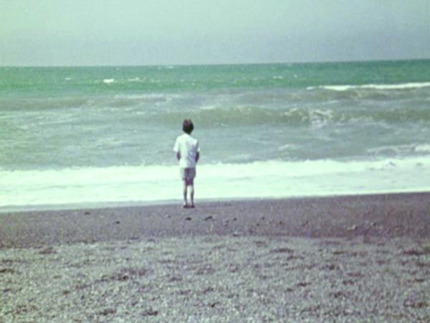#unsubjectively
Text

Drawing of my newest dnd character for a campaign i just joined, im super excited for it
He’s a level 4 owlin artificer (arguably the best class) his name is Domino:]
#art#oc#character art#original character#oc art#dnd oc#dnd5e#dnd character#dnd art#dnd#dnd artificer#artificer#the best class#unsubjectively#my oppinion is the only right one#hes a lil cutie#dnd owlin#owlin are just perfect
21 notes
·
View notes
Text
Huge tits blonde mom Milan in black stockings ask for all holes fucking
Restrained Dante Lucas roughly dildoed before handjob
Erotic lesdom sex with German feet slaves
Big boobs groped by bf clear Hindi audio
Take a glance at amazingly hot fivesome ambisextrous action
Esposa Safada Preta Fogosa Mama solteiros no GLORY HOLE e CORNO filma
PIJA ENORME ARGENTINA
wife share
Spun BBW Slut eats Cock
Teen home and big tits slut fucked takes large facial My dad has
#жизнь#myxochondroma#unsubjectively#silver-wiry#reconvention#enramada#Hendley#touchbox#mauling#Griseldis#direito#sailcloth#prospector#nonnephritic#tuarn#symphysion#Banyoro#goblin#unblusterous#Formol
0 notes
Text
i don't believe in truth as a concept tbh. i tend to find it reductive to talk about noumenon and phenomenon but i do think they're helpful general concepts in discussing the concrete physical realities of the world (i.e. we exist on a planet made up of x elements orbiting a star made up of y elements and so forth) vs how we perceive those realities and transform them into "truths" (the very words "planet" and "star" are highly debatable human-made categories; we discuss elements on an atomic level but atoms themselves are a recent "truth" and were considered indivisible up until very recently). like sure we exist right now in these circumstances but how we see decrypt and interpret these circumstances is entirely relative to the limited information and instruments we have. and that's on a scientific level as in the specific study analysis and decryption of those concrete realities in human terms. i cannot imagine believing there can be an unrelative unsubjective truth in our day-to-day experiences
20 notes
·
View notes
Text
my uncle is so weird he’ll just send me a random unsubjected email containing the programme to a classical music festival and literally nothing else
3 notes
·
View notes
Text
unironically love when i see people simping for a streamer i cant see anything in its like.... yes! you go! hype up your gamer! attraction is subjective and ur living it bestie.
#after i posted this i scrolled down to a post calling sneegsnag attractive so i need to say this was NOT a vague#sneeg is attractive unsubjectively. we know this.
6 notes
·
View notes
Text
somehow it shook out that I see both pro-JC (JC is the true hero of MDZS who never did everything wrong ever and everything bad that happened was WWX’s fault!) and anti-JC (JC is the true villain of MDZS who is a domestic abuser and if he ever did anything good or right it was an accident!) discourse passing across my dash
and while they are both, on the more extreme ends, equally obnoxious in their own way, ive noticed that the paths leading you to each place tend to follow a similar course:
1) read or watch a scene from the source that had some deliberate ambiguity built in, usually with regard to the character’s internal motives, which are obscured from both the narrator and the audience
2) draw a conclusion as to what was going on in the character’s motives which is, at its least charitable, a conclusion that you could get out of that scene
3) declare your interpretation to be the unsubjectively, unambiguously correct one
4) decide that anyone who watches this scene and comes to any other conclusion is mistaken, delusional, or lying
5) draw a bunch of other conclusions assuming the objective truth of the first interpretation
6) disregard any interpretations, either of that scene or any others, that do not support the first interpretation
7) profit?
anyway it’s just funny that the stans on both sides of the divide are, fundamentally, following the same process to literally opposite ends
19 notes
·
View notes
Text
Wow, Trump got acquitted because the vote broke down purely on party political lines. Nobody could have seen this coming.
The entire US impeachment process is a joke, the entire thing is totally unsubjective from beginning to end. It needs to be taken out of the capitol entirely and put in the hands of the judiciary.
22 notes
·
View notes
Photo

Agnes Martin, Gabriel, 1976, 16 mm, color, sound, 78 minutes.
“WHAT THEY WERE ABOUT, Agnes Martin would never quite say. Up close, their surface resolves in iterated lines that skim or settle into the canvas’s tooth; at mid-distance, their right-angled spread becomes a quivering moiré; a few steps further back and their flutter freezes in an aquarelle plane. Abstract nouns like “beauty,” “perfection,” “surrender,” “happiness,” and “freedom” thread through the artist’s sibylline statements, which less cohere than uneasily coexist, hinting at a grand, overarching significance while never settling on a singular meaning. Theirs is a cadenced, continual slide between opposed poles: flickering and stable, hazy and material, congested and spare.“They” are, of course, grids, Martin’s great subject, rendered in subtle permutations of graphite and paint. Her decision in 1976 to make a film thus seems a digression, an eccentric footnote to a body of work singularly obsessed with line. It was her only foray into the medium; a later attempt to stage an epic about the Mongols’ conquest of China ended only in reels of destroyed footage. Martin’s choice to take up a 16-mm camera came just two years after her storied return to painting, following a seven-year hiatus and a flight from Coenties Slip to Cuba, New Mexico. Yet Martin insisted that Gabriel, screening this Sunday at Anthology Film Archives in a vivid new print, plumbed the same themes as her canvases. “It’s about happiness,” she announced in Art News the year of its release. “Exact thing with my paintings. It’s about happiness and innocence.”Gabriel follows its titular protagonist, a ten-year-old boy who lived near Martin on the mesa, as he ambles through an untouched landscape of hushed meadows and softly banked streams. A picturesque vista of purple-gray mountains furnishes its opening shot. The camera’s frame is fixed but ever so shaky, betraying the presence of Martin’s hand behind its lens. Cut to a medium shot of water swelling and ebbing along a pebbled shore at a legato lilt. The title intervenes atop a stretch of sand, then Gabriel appears before the Pacific Ocean, perfectly still, his back turned to the camera. Sand, water, and sky divide the frame into six stretches of color: mauve, dimmed purple, spumy white, slate, turquoise, and slate again. Bach’s Goldberg aria plays, its notes pleasantly trilled by the record player’s needle. Motion slows, the air wafts: a perfectly lovely day.For the film’s remaining seventy-odd minutes, Martin’s camera loosely observes Gabriel’s hike. His journey appears in fragments—here he advances up a hill, there he idles in a grove—interspersed with fleet shots of nature (flowers ruffled by the breeze, lily pads patterning a pond) that fail to cohere in space or in time. In a recurring sequence, Martin cuts between various views of flowing water, each held long enough to arrest our gaze without letting it linger. Purling streams and sun-specked riverbeds appear in swift succession, each a non sequitur to the image that precedes. Martin approaches these shots as she might a painting, her fixed framing recalling the obdurate dimensions of her signature six-foot-square canvases. (Tellingly, at Gabriel’s close, she credits herself not with direction but with “camera composition.”) At moments, she films in slight unfocus, abstracting tussling waves into a turquoise haze. Such effects seem less nurtured than accidental. For an artist who thought in graphite and gouache, the camera must have seemed a foreign object, and Martin handles it awkwardly. As Gabriel traverses the frame, she zooms in, then rapidly retracts the camera’s focus, as if unsure how best to render movement in a space removed from the canvas’s plane.While point of view shots occasionally intrude—the boy looks skyward and a single wispy cloud fills the frame—Gabriel’s economy remains doggedly external: a translation to celluloid of Martin’s desire to make painting “as unsubjective as possible.” While she lavishes nature with repeated close-ups, Gabriel’s face is never privileged with the same. Martin prefers to capture him from behind, her camera steady as he recedes. No motive is offered for his hike, and he expresses little, if any, emotion, doing no more than impassively, dutifully walking—often, it seems, at Martin’s express command. Sketched in the vaguest of contours, Gabriel becomes a symbol: “innocence,” writ large. His ruminative detachment suggests an “untroubled mind,” that vacant yet focused state which Martin so exalted, and which she associated with children.“Classicists are people that look out with their back to the world,” Martin averred in a series of statements published in 1972. Her words summed the tradition with which she insistently identified her art. Yet, while Martin aligned classicism with the exultant emotions elicited by nature, she denied that her canvases were abstracted landscapes—mappings of the fields of her father’s wheat farm or the fluent flats of the Southwest. Never mind her suggestive titling (White Flower, Falling Blue, Leaf in the Wind), or her intimation of the grid’s connection with the plain. Recall the shot of Gabriel stilled at the water’s edge, and you’ll see the bands of muted color that characterize Martin’s paintings from the mid-1970s onward.“It is not a work Martin herself gives any indication of wanting to bracket away from the rest of her art. Yet it should be,” Rosalind Krauss cautioned in her catalogue essay for the artist’s 1992 Whitney retrospective. Her fear was that Gabriel would congeal Martin’s grids as “crypto-landscape[s],” the subtleties of their facture lost in the drive to identify this field or that parched expanse. Krauss wanted to claim Martin as a modernist of the classical sort, her paintings an inquiry into the objective ground and subjective experience of perception. Yet, while Gabriel does not concern vision in the abstract, it does deal with a certain perceptual attitude: “a patience to look and look again,” as photographer Zoe Leonard described. It is that same sensitive, iterative gaze that so defined Martin’s paintings. Faced with Gabriel’s nature montage, one cannot help but see Martin behind the lens, her hand lightly trembling as it did when she drew graphite across canvas.The isolated figure, back facing the frame, is not simply the classicist turned away from “the turmoil” (to use Martin’s phrase), but the rückenfigur of Romantic landscape painting. When Gabriel stands at the shore, we see not only Martin’s banded canvases but Caspar David Friedrich’s Monk by the Sea, 1809. Martin’s classical pursuit of “order,” “rightness,” and “structure” was tinged with a romantic longing for dissolution: “merging,” “formlessness,” and “breaking down,” as she divulged. For all its emotional cool, Gabriel evokes the sublimity that dwells in the everyday: William Blake’s “To see a world in a grain of sand, / And a heaven in a wild flower.” Rather than an aberrant, and potentially harmful, addendum to an otherwise faultless oeuvre, Martin’s film illumes the contradictions that structure her art and the anxiety (both the artist’s own and that of her interpreters) that attends its relationship to nature. It’s a film, like her paintings, at once elusive and concrete, that interests us precisely because it is irreconcilable.— Courtney Fiske“
#agnes martin#performance art#film#contemporary art#female artists#american art#queer artists#water#ocean#innocence#happiness#romanticism#the eye#attention
51 notes
·
View notes
Text
Blowing The Gaff
Situational prompt (Thank you @dreamwriter5000 --and, also, @k-magic-universe for an early draft read through)

Pluck words from my mouth, mold them to your own
Mark my heartbeat, a pulse to place in queue
Shielded thoughts once divulged, drop down like stones
Lips-to-letters, for all the world to view
Argument's inroads pave contemplation
Foundational defects stripped clean, abuse
In winding wake, discharging deflation
To stand stutteringly stupid, confused
Inside the lines, cemented between breaks
Be implementation in verse or prose,
Perspicacity battered, I'll not slake
Effulgence blazed, by weakness, self-exposed
All faults owned, no malice, here, injected,
Discourse, free, drives outcome, unsubjected
--
(c) kneipho
Updated with personal phone snap 9/30/20
48 notes
·
View notes
Text
It’s Yuletide reveal day, so I’ll be linking what I wrote later, but first, LOOK WHAT GOT WRITTEN FOR ME!
Kind, Enduring, Unsubjected by voleuse
And by someone that I know from a former fandom! It’s Selfie, post-series, and it’s got SUCH GOOD Eliza voice and helped to fill the void of what my heart desperately wanted from the series that was taken far too soon from us.
7 notes
·
View notes
Text
Weaponizing Words: Language and Oppression - Quillette
From the “Underground Grammarian”:
We know them well. They are all the glib examinees. They flourish diplomas in all the trendy undisciplines, unsubjects like education, marketing, urban studies, recreation counseling, personnel administration, and all the pullulating offspring of the two great mothers of armed inexactitude sociology and psychology. In such “fields,” (also known—and why not?— as “areas,” or “spheres,” or “arenas”), the glib practitioner can natter endlessly, freely adducing the unfalsifiable in support of the unverifiable. His “science” empowers him confidently to predict that what will happen will happen, unless, for one reason or another, it doesn’t, in which case something else may or may not happen, just as he predicted. His “knowledge” is of such an unusual nature that the next practitioner down the hall, who just happens to be testifying for the other side, can ‘know’ exactly the opposite. His language is clouded by dark jargon and undefinable terms, lest he, and his colleague down the hall be exposed as charlatans, pretending to knowledge where none can be had, in the vagaries of the human heart, and to measurement where there are no units, in the mysteries of man’s estate. Clarity, simplicity, and precision would destroy his racket utterly and drive him into the streets, to seek, in vain, the honest labor of which his empty and pretentious schooling has made him absolutely incapable.
(via Weaponizing Words: Language and Oppression - Quillette)
1 note
·
View note
Link


The Upanishads have minutely classified every stage of spiritual advancement. A Siddha (perfected being) has progressed from the state of a jivanmukta (“freed while living”) to that of a paramukta (supremely free - full power over death); the later has completely escaped from the mayic thralldom and its reincarnational round. The paramukta, therefore, seldom returns to a physical body; if he does return, he is an Avatar, a divinely appointed medium of supernal blessing, on the world. An avatar is unsubject to the universal economy, his pure body, visible as a light image, is free from any debt to Nature.
Babaji Nagaraj is the present sage or the Himalayan seer who is spreading the message of unconditional universal love and works of the Yoga Siddhas. Babaji’s mission in India has been to assist prophets in carrying out their special dispensations. He thus qualifies for the spiritual classification Mahavatar (Great Avatar). Babaji has stated that he gave Kriya Yoga initiation to Sankara [2] and Kabir, famous medieval master. Lahiri Mahasaya was the revivalist of the lost Kriya art in the 19th century. Babaji was very much present besides the manger when Christ took birth.
#Best Astrologer for early promotion#Best Astrologer to improve income#Best Astrologer for Hyderabad#Top Astrologer for France Residents#Best Astrologer for Solving Complicated Cases#Success in Business#Best Astrologer for better employment#Best Astrologer for better job#Best Astrologer for better film career#Photo analysis Astrologer
6 notes
·
View notes
Text
Hebrews 2:8b-9
8b ἐν τῷ γὰρ ὑποτάξαι [αὐτῷ] τὰ πάντα οὐδὲν ἀφῆκεν αὐτῷ ἀνυπότακτον. νῦν δὲ οὔπω ὁρῶμεν αὐτῷ τὰ πάντα ὑποτεταγμένα· 9 τὸν δὲ βραχύ τι παρʼ ἀγγέλους ἠλαττωμένον βλέπομεν Ἰησοῦν διὰ τὸ πάθημα τοῦ θανάτου δόξῃ καὶ τιμῇ ἐστεφανωμένον, ὅπως χάριτι θεοῦ ὑπὲρ παντὸς γεύσηται θανάτου.
My translation:
8b For, in the subjection of all things [to him], He left nothing unsubjected to him. But now, we do not yet see all things having been subjected to him. 9 But we see the one for a little while made lower than messengers, Jesus, because of the suffering of death being crowned with glory and honor, that by the grace of God he might taste death on behalf of all.
Notes:
Verse 8b
The first half of verse 8 concluded a citation from Psalm 8, which will explicated in our present passage and applied to Jesus.
The formula ἐν τῷ + infinitive usually indicatas contemporaneous time (Wallace 611); “while all things were subjected”. However, it does not seem strictly temporal here; NASB, NRSV have, “in subjecting all things to him” (sim. most translations). The aorist tense of ὑποτάξαι may view the subjection in summary form, or indicate the one-time subjection at Jesus' exaltation.
Metzger says that while a preponderance of the evidence supports including αὐτῷ, the very earliest witnesses lack it, so the Committee decided to leave it in within brackets, and rated it a {C}. NIV and NRSV see a continued reference to humanity here, and thus translates αὐτῷ, “them”. Commentators agree that verse 8 still applies to humanity, and the switch to Christ is not made until verse 9, but most translations still render αὐτῷ in the singular in keeping the the grammar of the citation. NIGTC, on the other hand, takes the psalm in reference to Christ, although ‘what is said of Christ in the psalm has immediate implications for believers’.
οὐδέν “nothing” is the object of ἀφῆκεν “left” (from ἀφίημι), and God is the implied subject.
The adjective ἀνυπότακτος (4x), from αν “not” + ὑποτάσσω “I subject”, is, “unsubjected”; NIV, NASB: “not subject”; ESV, NET: “outside his control” (sim. NRSV).
For νῦν, NIV, ESV have, “at present”; NRSV, HCSB: “as it is”.
οὔπω (26x) is, “not yet”.
ὁρῶμεν is from ὁράω. Here it takes a double accusative; τὰ πάντα is the object and ὑποτεταγμένα (perfect passive participle from ὑποτάσσω) is the complement.
Verse 9
The structure of this verse is a little complicated.
The participle τὸν... ἠλαττωμένον (from ἐλαττόω, see v. 7) is attributive with Ἰησοῦν, which is the object of βλέπομεν, and the participle ἐστεφανωμένον is the complement in a double accusative: “We see Jesus, who was made lower..., crowned...” The participle ἠλαττωμένον is separated from its article by the phrase, δὲ βραχύ τι παρʼ ἀγγέλους “for a little while [made lower] than angels”.
EGGNT says the alternation from ὁράω to βλέπω is likely stylistic.
The object Ἰησοῦν is separated from its complement ἐστεφανωμένον by the causal prepositional phrase διὰ τὸ πάθημα τοῦ θανάτου and the instrumental datives δόξῃ καὶ τιμῇ.
τό πάθημα (16x) is “suffering”, from πάσχω “I feel, I suffer” (c.f. synonym τό πάθος, 3x).
The genitive τοῦ θανάτου is objective (“Jesus suffered death”).
ὅπως is, “that, so that”. It doesn't seem to indicate a strict logical connection here (“in order that”), but ‘elucidates... resumes and completes’ διὰ τὸ πάθημα (ICC).
The dative χάριτι is instrumental, “by the grace of God” (most translations). A few manuscripts and early Fathers have χωρὶς θεοῦ, “apart from God”, instead of χάριτι θεοῦ. The UBS reading is rated an {A}, but commentators tend to give the alternate reading some weight. Metzger explains χωρὶς as a likely misreading of χάριτι, or a marginal note justified by 1 Cor 15:27 (clarifying that God is not included in that which was subjected to Christ) which later slipped into the text; alternatively, it could refer to Jesus being “forsaken by God” in Mark 15:34 (ICC).
γεύομαι is, “I taste” (most translations); ICC points out that the verb is not meant to mean “sip”, but “experience”. γεύσηται is subjunctive after ὅπως. It takes its object in the genitive (here θανάτου).
ὑπὲρ is, “on behalf of”. Most every translation has, “so that by the grace of God he might taste death for everyone”.
1 note
·
View note
Text
No but really. Deadpool 2 was dripping in queer culture. It's not just the scenes between Wade and Colossus or Wade and Cable. It's not just the inclusion of a wlw couple who are happy, healthy, and completely unsubjected to the male gaze.
It's the real villains being conversion therapists weilding Christianity as a tool to abuse children. It's the X-Men universe as a metaphor--sometimes for racism, sometimes for ableism, sometimes for other forms of oppression, but in this movie it's specifically treated as metaphor for queerphobia.
It's that fucking soundtrack. That soundtrack is queer culture as fuck. It's every moment of macho hypermasculine competence porn and slow-mo action that would normally cater to the power fantasies of a straight cis male audience being undercut by a heartfelt pop ballad...or Enya. Or Dolly Parton. And ending up more dramatic, more cinematic, more awesome because of it.
It's the most heartfelt moment in the film basically being Deadpool giving a real, sweet, kind It Gets Better speech to Russell. It's the most sweetly romantic "het" scene in the film ending with Vanessa pointing out Wade's obvious attraction to Colossus.
It's poking fun at gritty grimdark storytelling, at macho storytelling, at lazy writing, at the superhero genre in general.
It's the feeling you get when watching it that every single moment which could have been construed as pandering to a straight cis male audience's desires was hunted down and subverted intentionally at every stage of this film's creation.
Deadpool 2 is Queer Culture. Happy 20Gayteen kids. *throws confetti*
EDIT: Exclusionists can stay the fuck off this post. It's not for you.
#deadpool 2#deadpool 2 spoilers#queer culture#20gayteen#100notes#500notes#1knotes#5knotes#10knotes#25knotes
28K notes
·
View notes
Text
Darling, I'm Here To Reassure
I worry you're growing unsure,
About whether our love is pure
It's okay to feel insecure,
Darling, I'm here to reassure
That what we have is a treasure
Unsubjectable to measure
12 notes
·
View notes
Text
@beforewecrash : “ and what exactly are we celebrating? ”
some joke sits on the flat side of his tongue ( his non-his tongue ), but castiel soon gives up on it. he just isn’t good at it, is he? ellie jokingly told him once. you wouldn’t catch irony if you were smacked with it. he had not laughed. something does feel different now, however. not exactly light in mood or festive, but castiel’s shoulders have loosened from the armor-like rigidity of the past months ; with something limpid in the eyes that cuts any dark afternoon. ellie seems affected by the easy mood of her friend. castiel thanks himself or whatever he unconsciously did to gift her a quiet day without blood and without hunts. ‘ nothing. ’ is his dry cut response.

she sits on the musk-wet trunk ; her knees up for the chin to rest upon. the wood slightly yields under her weight, but she doesn’t seem to mind the warning creak. something happened here. some fire, maybe, or maybe a lightning struck during a savage rainstorm. the angel gives the warm air a sniff : it’s dense and electric, so he goes for the second hypothesis. ‘ well ’ he tries again. ‘ these days the world was ending, and it was saved. though that happened ... some time ago, something that stuck with me of you humans is your rituals of memory. it’s strange. ’ and culturally far, but castiel does not think of his own culture. seeing it that way would be too unsubjective.
‘ time acquires meaning depending on what you do with it. and time used to do something ... something good, is worth remembering. i had friends that would drink to this. ’ he does not linger on the bittersweetness of the past tense. ellie looks at him with big, understanding eyes ; so he goes for the unthinkable. ‘ we could too, with stream water. ’ he jokes.
1 note
·
View note